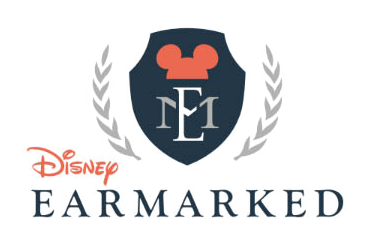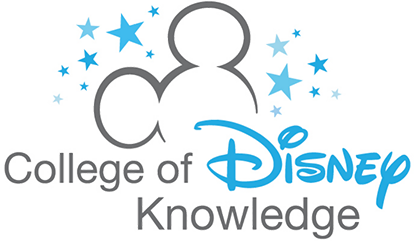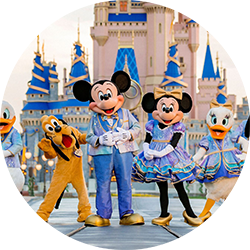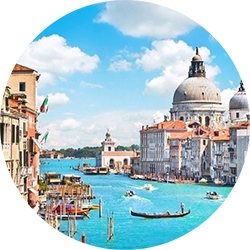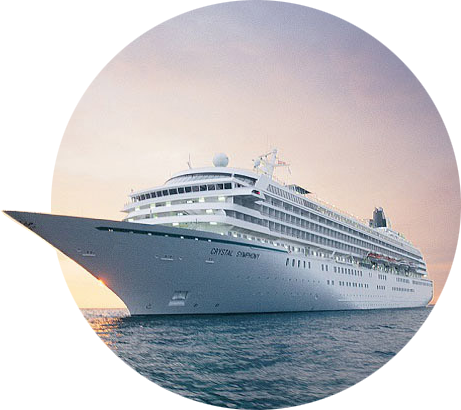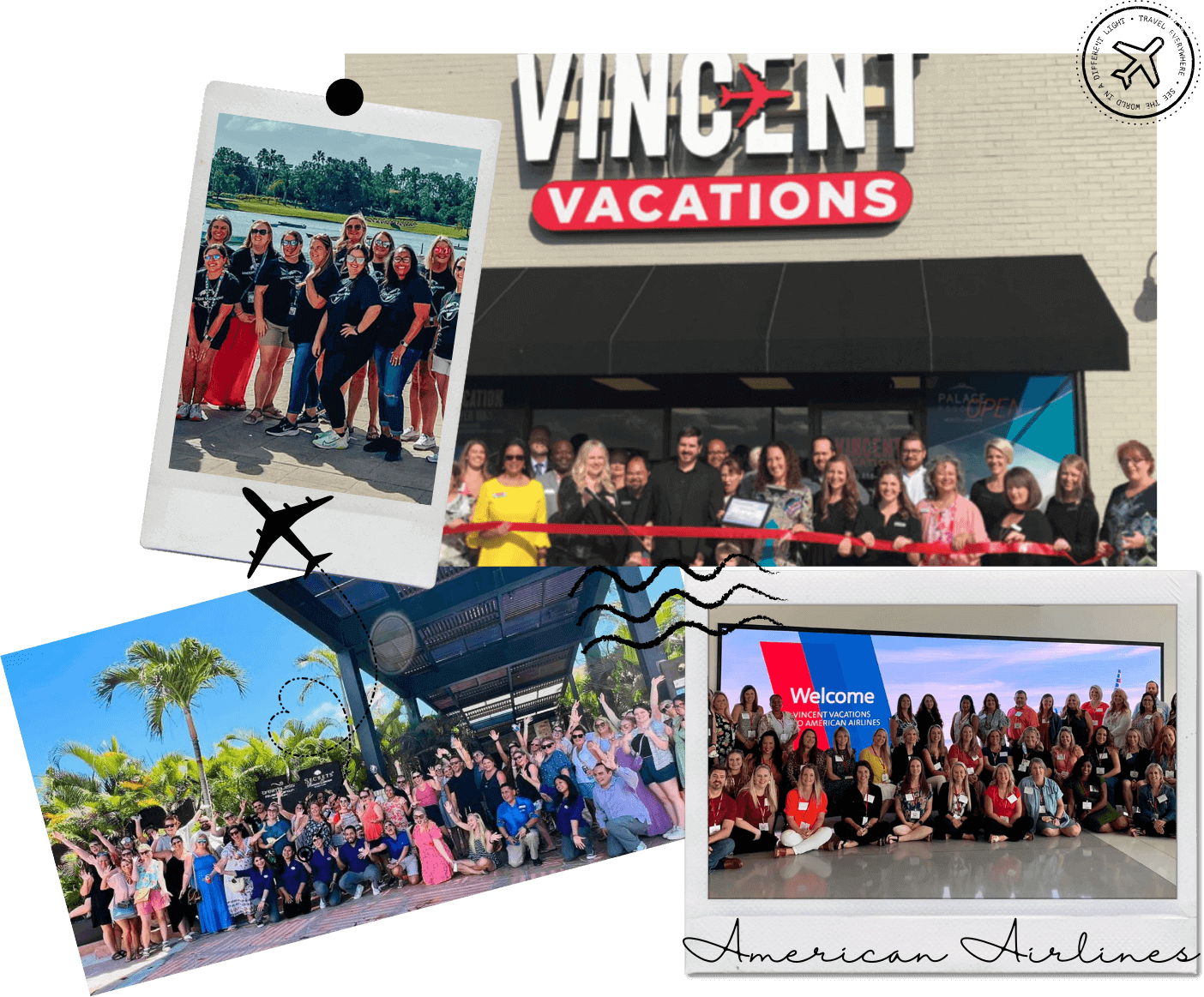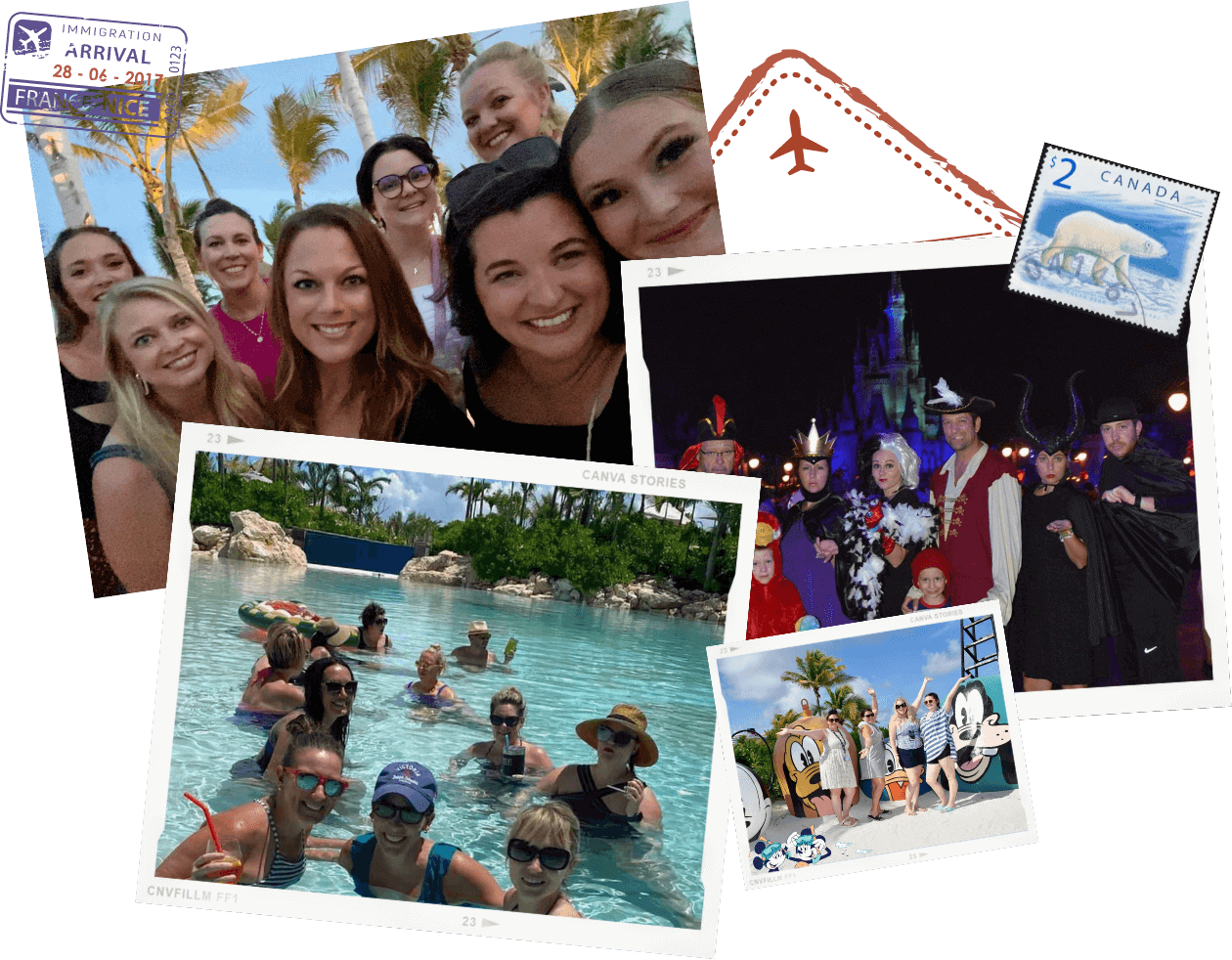
Experiencing a major Chinese festival in Hong Kong is an enchanting and mesmerizing adventure. Hong Kong's major traditional festivals are colorful and noisy affairs, at which thousands upon thousands of people turn out to join the celebrations. Fireworks, festive feasting, lion and dragon dancers, incense smoke, Chinese opera, mah jong, fortune-telling, carnivals and parades come together in a variety of combinations to create a uniquely festive atmosphere seen nowhere else in the world. The festivals are among the best ways to experience the unique culture of this modern East-meets-West destination. There are festivals throughout the year that you are sure to enjoy.
Ching Ming Festival
Ancestor worship is a Chinese tradition dating back thousands of years. Also known as the Grave-sweeping or Spring Remembrance, Ching Ming ("clear and bright"), is when Chinese families show their respect by visiting the graves of their ancestors to clear away weeds, touch up gravestone inscriptions and make offerings of wine and fruit. Public transport is widely used, particularly on routes along which cemeteries are located.
Birthday of Tin Hau
All those who owe their livelihood to the sea praise Tin Hau, the Goddess of the Sea. Tin Hau's birthday is celebrated in May to bring safety, security, fine weather and full nets during the coming year. There are celebrations at Tin Hau temples in different districts in Hong Kong. Seafarers adorn with boats with colorful ribbons praising the goddess for past protection and praying for future luck. Boats are loaded with symbols of devotion, with offerings to the goddess.
The festival in her honor culminates in a procession and is characterized by floral paper offerings known as fa pau. Every year Joss House Bay, in Sai Kung, hosts a vivid celebration, where traditional rites are observed at the temple. In Yuen Long, in the New Territories, a parade takes place with lion dances.
Cheung Chau Bun Festival
A celebration dominated by white Chinese buns is quite a spectacle, and it is one not to be missed. Every year on the tiny island of Cheung Chau, the people of Hong Kong celebrate the Bun Festival, also in May. Enormous bamboo towers studded with white Chinese bun and effigies of three gods dominate the grounds near the Pak Tai Temple, where the main festivities take place. The festival that lasts for about a week climaxes with a large, colorful street procession, which features costumed children on stilts in a carnival atmosphere that winds its way through the streets.
One of the reputed origins of this popular festival, which attracts tourists by the tens of thousands each year, involves a plague on the island hundreds of years ago. Villagers disguised themselves as different deities and walked around the island to drive away the evil spirits responsible for the plague. Another story says the festival is part of an annual exorcism and fast.
In the past, the last event of this weeklong celebration was the climbing of the bun towers. Athletes would scamper up the bamboo bun towers and grab as many buns as possible. The buns would then be sold or distributed to those who did not join in the competition. This ritual was abandoned in 1978, but was resumed again.
Birthday of Lord Buddha
The birthday of Lord Buddha is a celebration of great reverence in Hong Kong's Buddhist temples. Worshippers show their devotion throughout the day by bathing Buddha's statue. Celebrations centre round the major monasteries in Hong Kong. Po Lin Monastery on Lantau Island, home to the world's largest, seated, outdoor bronze Buddha, is one of hubs of activity at this time. Enjoy sumptuous Chinese vegetarian dishes at Po Lin Monastery; observe the ceremonies at some other monasteries.
Birthday of Tam Kung
Another patron saint of the sea, Tam Kung, brings security and happiness to all fishermen. His birthday festival is celebrated with considerable devotion and fanfare at the Tam Kung Temple in Shau Kei Wan on Hong Kong Island, which dates from 1905. Similar to the Tin Hau festivities, the seafarers celebrate in order to secure safety and good luck during the coming year.
Dragon Boat Festival
This Festival, also known as Tuen Ng Festival and celebrated in June, commemorates the death of a popular Chinese national hero, Qu Yuan, who drowned himself in the Mi Lo River over 2,000 years ago to protest against the corrupt rulers. Legend says that as townspeople attempted to rescue him, they beat drums to scare fish away and threw dumplings into the sea to keep the fish from eating Qu Yuan's body. The real highlight of the festival is the fierce dragon boats racing in a lively, vibrant spectacle. Teams race the elaborately decorated dragon boats to the beat of heavy drums. The special boats, which measure more than 10 meters, have ornately carved and painted "dragon" heads and tails, and each carries a crew of 20-22 paddlers.
Participants train in earnest for the competition. Sitting two abreast, with a steersman at the back and a drummer at the front, the paddlers race to reach the finishing line, urged on by the pounding drums and the roar of the crowds. Today, festival activities recall this legendary event. People eat rice-and-meat dumplings wrapped in bamboo leaves; and many look forward to swimming or even simply dipping their hands in the water.
Birthday of Kwan Tai
Kwan Tai is the God of War and the patron of Hong Kong's police and gangsters! An historical figure from the Three Kingdoms period (AD 220-265), Kwan Tai was later deified as a Taoist symbol of integrity and loyalty. An ever-burning lamp stands before his statue in the colorful mid-19th Century Man Mo Temple on Hong Kong Island's Hollywood Road. Meaning "Civil and Martial", the temple is dedicated jointly to Kwan Tai and to the God of Literature.
Yue Laan (Hungry Ghost) Festival
For one long lunar month during the Hungry Ghost Festival, ghosts are said to roam the earth. In some areas of Hong Kong, visitors can see small roadside fires, where believers burn paper money and other offerings to appease the restless spirits.
Mid-Autumn Festival
The Chinese Mid-Autumn Festival is one of the most charming and picturesque nights of the calendar. The festival commemorates a 14th Century uprising against the Mongols. In a cunning plan, the rebels wrote the call to revolt on pieces of paper and embedded them in cakes that they smuggled to compatriots.
Today, during the festival, people eat special sweet cakes known as "Moon Cakes" made of ground lotus and sesame seed paste, egg-yolk and other ingredients. Along with the cakes, shops sell colored Chinese paper lanterns in the shapes of animals, and more recently, in the shapes of airplanes and space ships. On this family occasion, parents allow children to stay up late and take them to high vantage points such as The Peak to light their lanterns and watch the huge autumn moon rise while eating their moon cakes. Public parks are ablaze with many thousands of lanterns in all colors, sizes and shapes.
Also not to be missed is one of the most spectacular celebrations you'll ever see which takes place in Causeway Bay during the Mid-Autumn Festival on the 14th - 16th day of the eighth lunar month. It's the fire dragon dance in Tai Hang - a collection of streets located in behind the Causeway Bay recreation grounds and features a dragon measuring 67 meters.
Over a century ago, Tai Hang was a village whose inhabitants lived off of farming and fishing. A few days before the Mid-Autumn Festival a typhoon and then a plague wreaked havoc on the village. While the villagers were repairing the damage, a python entered the village and ate their livestock. According to some villagers, the python was the son of the Dragon King. The only way to stop the havoc which had beset their village was to dance a fire dance for three days and nights during the upcoming Mid-Autumn Festival. The villagers made a big fire dragon of straw and stuck incense into the dragon. They lit firecrackers. They danced for three days and three nights and the plague disappeared.
Monkey God Festival
This mischievous and playful god first appeared in Pilgrim to the West, a novel dating from the Ming dynasty (1386 – 1644) and has been brought into Western and Eastern popular culture with a TV series and movies detailing his adventures. An outcast from Taoist heaven, the Monkey God was redeemed and gained Buddhist immortality by escorting Tang Xuan Zang on his pilgrimage to the West to obtain the teachings of Lord Buddha.
In bygone days, during the Monkey God Festival, a possessed medium would receive tributes from followers and run barefoot over hot coals and then climb a ladder of knives and remain unhurt! This practice has however ceased and today people celebrate the Monkey God’s birthday by burning incense and paper offerings as tribute to the deity. The Monkey God Temple is located in Sau Mau Ping in Kowloon.
Birthday of Confucius
Confucius's Birthday is celebrated reverently by Hong Kong's devout followers. One of China's most influential philosophers, Confucius's ethics stress self-enlightenment through the Five Virtues of charity, justice, propriety, wisdom and loyalty.
Filial devotion and ancestral worship, observed during the Ching Ming and Chung Yeung festivals, continue to be a cornerstone of Confucianist practice today.
Chung Yeung Festival
The Chung Yeung Festival is a day to respect and remember ancestors. Also known as Autumn Remembrance, this festival is similar to Ching Ming in the spring, in that families journey to the graves of their ancestors to perform cleansing rites and pay their respects. They share the food they bring along, especially Chinese cakes, ko, which is a homonym of the word for "top". Some believe that those who eat these cakes will be promoted to the top.
It is also a day for hiking. The Chung Yeung Festival commemorates a Han Dynasty (BC 202-AD 220) legend, which tells how a soothsayer advised Woon King that he should take his family to a high place for the entire ninth day of the ninth moon. Upon their return, the Woon family discovered all living things in their village had been slaughtered. Today, many Hong Kong families head to the hills to picnic during the Chung Yeung Festival. With the cooler weather and clear skies at this time of the year, many people simply take the opportunity to go on one of Hong Kong's many hikes.
Dong Zhi (Winter Solstice Festival)
Dong Zhi is the second most important festival of the Chinese calendar. Celebrated on the longest night of the year, Dong Zhi is the day when sunshine is weakest and daylight shortest. The coming of winter is celebrated by families and is traditionally the time when farmers and fishermen gather food in preparation for the coming cold season. It is also a time for family reunions. This celebration can be traced to the Chinese belief in yin and yang, which represent balance and harmony in life. It is believed that the yin qualities of darkness and cold are at their most powerful at this time, but it is also the turning point, giving way to the light and warmth of yang. For this reason, the Dong Zhi Festival is a time for optimism. Dong Zhi is celebrated in style. The longest night of the year is a time to put on brand new clothes, visit family with gifts and to laugh and drink deep into the long night.
Chinese New Year
Hong Kong offers visitors an amazing Chinese New Year celebration experience! Chinese New Year is always special, being the biggest event on the Lunar calendar and Hong Kong people mark the occasion with a unique fusion of ancient customs and modern fun in the world's biggest Chinese New Year celebration. There are flower markets, a spectacular night parade, exciting fireworks, fast-paced sporting events and more to enjoy.
Spring Lantern Festival
Here is the perfect opportunity to gain insight into the Chinese world of romance. Adding a final splash of color to Chinese New Year is the popular Chinese Valentine’s Day! Following an old Chinese Tradition, flower markets, restaurants, homes and parks are filled with colorful lanterns in traditional designs. Visit the parks listed below and celebrate the traditional festival with lantern riddle quizzes, fortune telling, games and performances!
Seven Sisters Festival
Hong Kong's girls and young lovers have the Seven Sisters Festival all to themselves. The festival has its origin in Chinese folklore dating back more than 1,500 years. The legend features a weaver maid (with six older sisters), who led a lonely life working at her loom throughout the year. Her father, the Heavenly Emperor, felt sorry for her and allowed her to marry a cow-herder from across the Milky Way. After the wedding, she neglected her weaving duties and the Emperor ordered her to return home and visit her husband only once a year - on the seventh day of the seventh moon.
The celebrations centre on religious rites and feature needlework competitions. As part of the worship, young women make offerings to the night sky and the two stars that represent the cow-herder and the maid. They usually present fruit and burn joss sticks and incense in the open air, chiefly on rooftops, in backyards and gardens or at Lovers' Stone on Bowen Road in Wan Chai.
Copyright 2009. All Rights Reserved. Signature Travel Network and Hong Kong Tourism Board.






